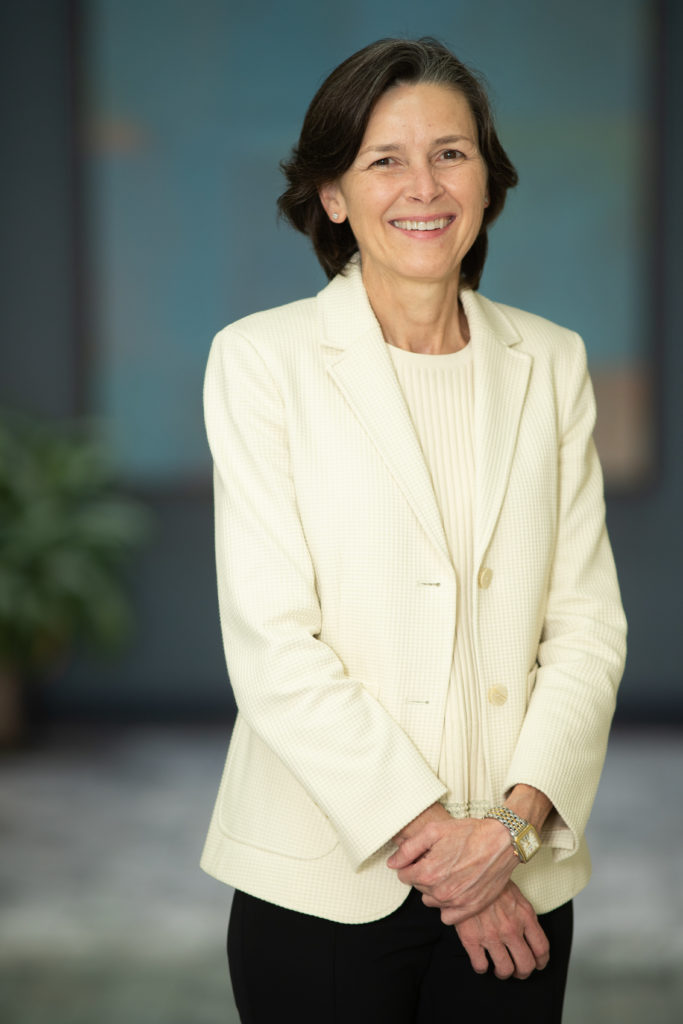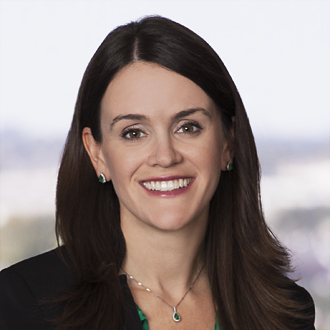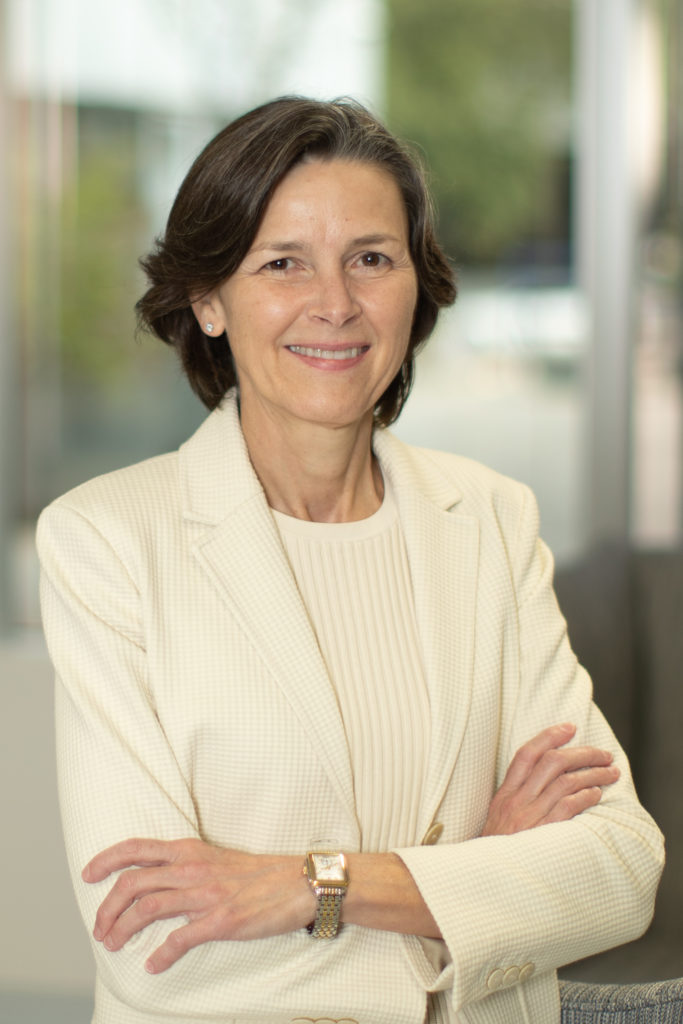
Charlotte Rasche and her team at Prosperity Bank worked days and nights in the early weeks of 2020 to integrsate LegacyTexas Bank operations.
Only two months earlier, Houston-headquartered Prosperity acquired the Dallas-based bank for $2.1 billion in what was the second-largest bank merger in Texas history.
“There were various issues that arose related to the conversion and integration of LegacyTexas, from technology to staffing,” Rasche said. “Then March came and Covid hit. We could not stop the transition of the bank combinations because they had to be completed. We were still operating on two different computer systems.
“But Covid presented so many more issues,” she said.
With 273 banking locations across Texas and Oklahoma, Prosperity officials had to address concerns of employees, customers, landlords, health regulations from federal, state and local authorities.
“We had so many questions to address: should we close branches or require facemasks and social distancing or just operate drive-throughs? What signs should we post on the bank doors and what should those signs say? Dallas and Travis counties had strict face mask requirements, but Collin County didn’t,” Rasche said.
And then PPP, the federal Paycheck Protection Program.
“Oh yeah, PPP occupied an extraordinary amount of our time and efforts and resources,” she said. “The Small Business Administration changed the rules about every six hours. There was a lot coming at us quite quickly.”
“It was all-hands-on-deck,” she said.
Rasche and her team met the challenge. Prosperity processed 14,000 PPP loans with a combined value of more than $1 billion. They finished full integration with LegacyTexas in June 2020. The bank developed policies and processes to allow employees to continue working and remain safe. And the bank kept all of its bank offices open – some drive-through only and some required advanced appointments for in-person meetings.
“We decided from the start that we had to put customers first and that people needed to know they could rely on Prosperity bankers to be available for them even during a pandemic.”
Citing her extraordinary success during highly stressful times, the Association of Corporate Counsel’s Houston Chapter and The Texas Lawbook recognize Rasche as a finalist for the 2021 Houston Corporate Counsel Award for General Counsel of the Year for a Midsized Legal Department.
ACC Houston and The Lawbook plan to honor the finalists and announce the winners of the 2021 Houston Corporate Counsel Awards on Jan. 13 at an awards ceremony at the Four Seasons in Houston.
“Under Charlotte’s guidance, Prosperity Bank initiated a creative partnership with its outside law firms to document and administer these loans,” said Winstead shareholder Kathryn Blackney Oakes, who nominated Rasche for the award.

“This was a monumental effort which had to be achieved on a compressed timeframe due to the constrained period required by the PPP regulations and was vitally important to the recipients, many of whom faced severe hardship due to the impact of the pandemic on their businesses.” Oakes said.
Prosperity Bank, which has a market cap of $6.7 billion and $36.5 billion in customer assets under management, hired Rasche in March 2012 as general counsel for her expertise in corporate governance and mergers and acquisitions.
In the decade since Rasche has led Prosperity Bank through more than a dozen M&A deals, including the acquisitions of the Bank of Arlington, Bellaire-based Community National Bank, First Victoria National Bank, Coppermark Bank of Oklahoma City and First Federal Bank of Tyler. Eight transactions between 2012 and 2014 nearly doubled Prosperity’s asset size.
The largest was the 2019 merger with Plano-based LegacyTexas, which added 42 branches in 19 Texas cities and $9.3 billion in assets to the Houston financial institution’s ledger.
“At the time, there were several opportunities that the company had [for potential mergers], but the Legacy transaction was the best fit strategically and culturally,” Rasche told The Texas Lawbook. “The decision to pursue it was an easy one.”
Rasche was born in Tempe, Arizona, but the family soon moved to Illinois, where her father worked at Southern Illinois University as a librarian. When she was 10, her parents traveled to Galveston to interview for a position at the University of Texas Medical Branch.
“While my father was in interviews, my mother and I swam at the beach and the hotel pool,” she said. “When we tried to fly home the next day, the St. Louis airport was closed because of snow. That sealed the deal for my dad, and he accepted the position.”
Rasche’s father, who had advanced degrees in library science, worked specifically with rare medical books. He was an excellent cook and loved music and art. He passed away in 2003.
Her mother turns 97 this month and still plays the pipe organ, piano and viola. She received a master’s degree at the American Conservatory of Music in Chicago. Her mother was a Fulbright scholar who studied at the Royal Conservatory in Belgium. She became the organist and choir director at Moody Methodist Church in Galveston in 1975 and is organist emerita. She is also a charter member of the Galveston Symphony and played viola for it for 40 years.
Early in life Rasche was drawn to problem-solving. She earned her bachelor’s degree in business administration from Stephen F. Austin University and a master’s degree in higher education from Oklahoma State University.
In 1989 she took a job at Texas Tech University where she served as a coordinator for about half of the residence halls on campus.
“This article isn’t long enough for all of the stories, but let’s just say that freshmen men can find all types of things to cook in a microwave,” she said. “I have fond memories of my time at Tech and the talented and caring colleagues that I worked with. It was there where I learned true teamwork and how to supervise a diverse workgroup.”
Rasche thought a law degree would be attractive on her rḗsumé. She took the LSAT and was accepted at the University of Texas at Austin. Even then she had no plans to practice law.
But in 1997 Bracewell hired Rasche to join its financial services practice.

“I was hooked,” she said. “It was the beginning of my journey in financial services.”
During her 14 years at Bracewell, Rasche worked on scores of bank M&A deals. She represented La Grange-headquartered Texas United Bancshares in at least five or six acquisitions and Encore Bank in multiple deals before their sale to Cadence Bank in 2012. And she advised Southern National Bancorp of Virginia in several acquisitions, including its sale to Provident Bank.
But Prosperity became her best client. She did more than 30 transactions for Prosperity while at Bracewell, including the bank’s initial public offering in 1998.
“While it was intensive and challenging work, it also allowed for the opportunity to build strong lasting relationships with clients,” she said.
In 2012 Prosperity’s then-general counsel, Peter Fisher, invited Rasche to lunch and told her he planned to retire.
“I was intrigued,” she said. “I had built strong relationships with the management team and admired their strategic focus, work ethic and how they treated others. It was a tough decision to leave the firm, but I felt that this opportunity to work with a client that I had such deep relationships with was one that I couldn’t pass up. It has been an incredible opportunity and allowed me to broaden my legal and business skills.”
Prosperity hired Rasche in March 2012. She now has a legal team of nine and oversees a compliance group of about 20.
When she joined Prosperity Bank in 2012 as general counsel, the bank had $9 billion in assets. That sum is now $36.5 billion.
Rasche and the bank were still absorbing the merger with LegacyTexas in early 2020 when the Covid-19 pandemic hit.
“All travel ended. There were no more in-person investor meetings,” she said. “We all had to learn Zoom and WebX, though I have never learned how to have my face centered on the screen.”
“We dealt with some business bankruptcies, but there were not as many as we anticipated because of government provisions for loan extensions. There were not that many loan defaults as might be expected – again because of government intervention.”
Rasche said the bank also saw a dramatic increase in fraud, though only one masked robber.
“We saw a lot of scams on the elderly, for example, from fraudsters who claimed to be from Amazon or some other business saying that they had overpaid and they needed their bank account information to do a reimbursement,” she said. “Another scam was that criminals hacked people’s email and obtained real-estate-closing information and called people and said the title company was calling telling them to wire funds.”
In April 2020, Congress passed – and President Donald Trump signed – the pandemic-relief law that included the first round of PPP money for small and midsized businesses.
To help deal with the wave of PPP applications, Rasche said Prosperity partnered with a company to create a platform for bank customers to submit their forms for the Small Business Administration.
Rasche also partnered with about a dozen law firms across Texas to review the loan-application documentation. Winstead, for example, handled more than 800 over a 15-day period.
Oakes and Winstead’s commercial real estate finance group has represented Prosperity for several years.
“Charlotte has a masterful grasp of running the legal and business complexities of a financial institution,” Oakes said. “She has successfully navigated the bank’s legal department during the course of its dynamic growth with her opportunity-oriented mindset and action-driven mentality. She oversees with great skill the challenges that face a bank of Prosperity Bank’s size – regulatory matters, governance and reporting issues, human resources, and commercial, consumer, and litigation issues.”
“The success of the bank in serving its customers in the communities in which it serves is in no small part due to Charlotte’s countless contributions over the years,” she said. “Charlotte is a gem for Prosperity Bank.”
